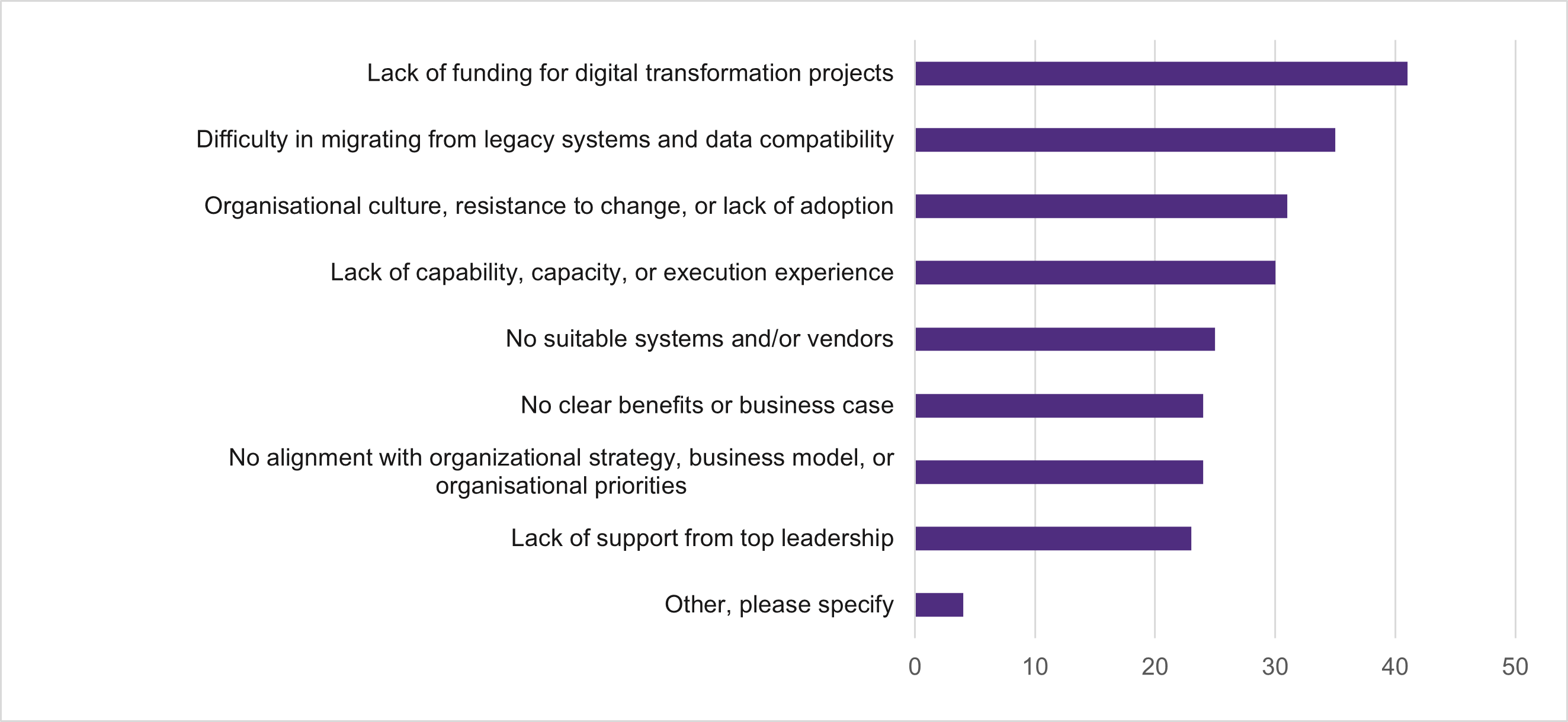South Africa is ranking the 3rd most optimistic about the outlook of the economy for the next 12 months.
This optimistic view will not be possible without investment in technology, which is an enabler. Notwithstanding the downward trend in technology investment, the country is still amongst the top 10 globally, ranking 7th in terms of future technology investment intentions. The country also invested heavily in technology during COVID-19 period, where the investment shot up to 84% in H1 – 2021.
The country ranks 5th globally in investing in staff skills, aligning with technology investment plans. Skills will have to be re-harnessed to aid the adoption and utilisation of technology and to realise the benefits of technology investments.
A recent study concluded by the University of Johannesburg on Emerging Technologies in South Africa: A landscape analysis (2022), which included data set from 262 firms, found that the country is investing in the following top 10 technologies to enable economic growth and development.
- Next generation health
- Artificial intelligence
- 3d printing
- Energy storage solutions
- Biotechnology
- Water purification technologies
- Hydrogen technologies
- E-commerce technologies
- Software/ mobile applications
- Next generation agro-processing
Digital transformation is about how businesses bring people, processes, and data together to create value for the stakeholders in the digital world. The key thing for the digital and automation transformation journey is to take people/ employees along, or else the envisaged benefits will not be fully realised. The IBR data survey shows the limitation of digital transformation to be more people related than technology related.
Sylvia Sathekge - Chief Information Officer

Technology is advancing rapidly; therefore, it is important that funders understand what they are investing in. There is a need for a strong business case advocating for the transformation and related benefits of technology, as well as making sure that funders and senior executives understand the reasons and benefits of introducing advanced technologies so they can invest confidently. The difficulty in migrating legacy systems and compatibility challenges can be overcome by rationalising the current processes. Implementing inefficient processes into a new digital platform will not yield the benefits. Training and reskilling people, while encompassing cyber safety will support an easier adoption of technology.



